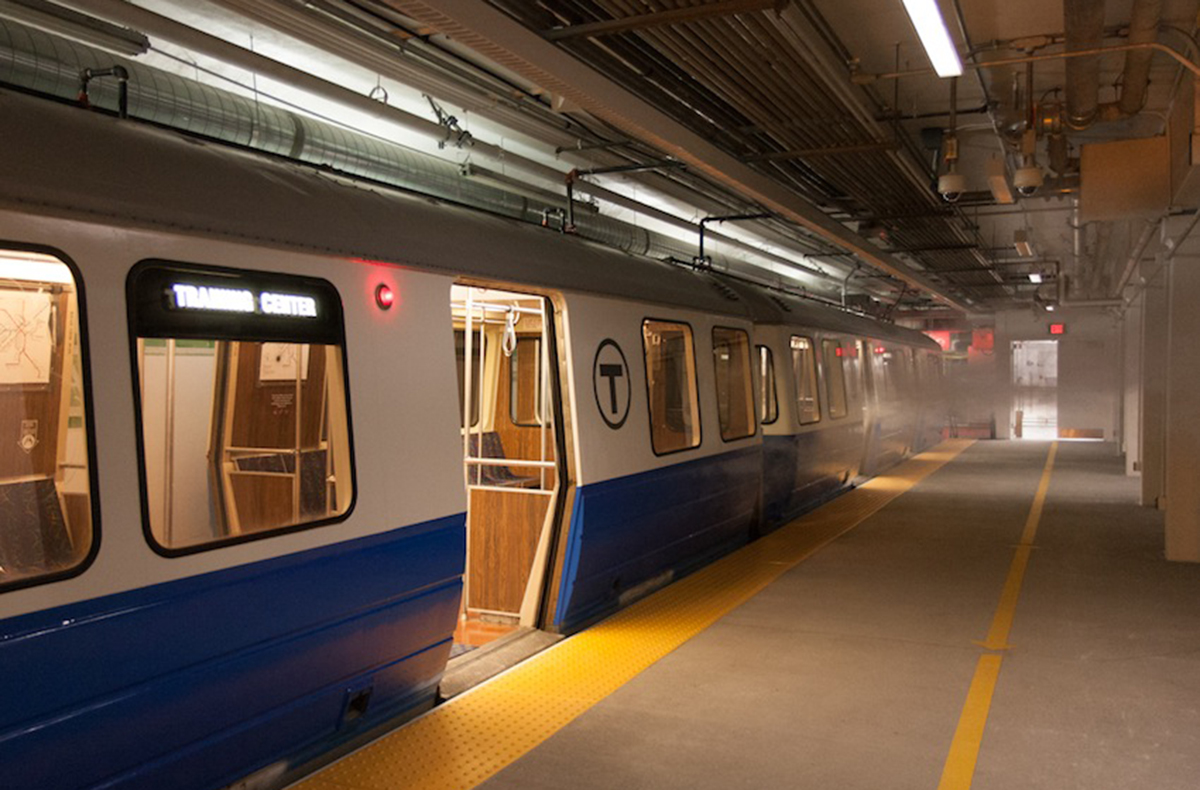MBTA Trains Thousands of Employees to Better Handle Emergency Situations

Image via MBTA
Times have changed.
Calls for suspicious packages post-Boston Marathon bombing, and “active shooter” scenarios across the country “are a reality,” according to MBTA security and emergency management director Randy Clarke.
That’s why T officials want their employees to be ready for just about any type of crisis that may occur during their shifts. “We want to give them really formal training if anything ever did happen,” said Clarke.
In the fall, the MBTA rolled out an intensive eight-hour course at the Transit Police’s brand-new Emergency Training Center in South Boston, called Security Awareness and Emergency Preparedness.
A collaboration between MassDOT’s Security and Emergency Management Department, MBTA Operations Training School, and the Transit Police department, more than 2,200 “first line employees,” which includes heavy rail operators, bus operators, trolley operators, and customer care employees at stations, have already completed the class.
Clarke said the daylong lessons, which teach employees how to better differentiate “suspicious packages” from “discarded packages,” and how to effectively communicate with emergency first responders during high-pressure situations, is a hands-on experience that utilizes the facility in South Boston.
It’s there that the T recently completed a state-of-the-art transportation lair for police and fire officials to run through emergency response drills on mock train cars and station platforms. The multi-million dollar facility, funded by the Department of Homeland Security and housed below street level, was shared with T employees over the course of the last five months to teach the new course.
“The idea of this type of training—and this could change based on the types of threats—is that we want to be ready, and make sure our employees are ready and up to date,” said Clarke.
Clarke said T employees already go through intensive training when they’re first hired, and complete safety modules, security modules, and driving modules. But the Security Awareness and Emergency Preparedness is “very, very specific” in terms of what is taught to transit workers.
“This is on a much deeper level,” he said. “We can now do hands-on, effective training that couldn’t be done before.”
About 700 employees still need to take the course before it wraps up in February, then the T will begin training the contracted cleaners that tend to dirty stations throughout the system, so they too can be ready at the drop of a hat—or injured passenger.
“The MBTA’s cleaners have unique familiarity with and exposure to the MBTA system, and this is the first time they will be receiving this type of training,” according to a statement from the T.
A similar version of the course will also be rolled out to maintenance and administrative employees in 2015.
“These people are now better able to coordinate during an emergency response, and the better we do that, the better service can move for customers,” Clarke said.


